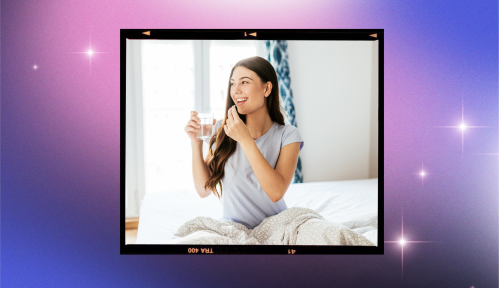Yes, technology can help you sleep—here’s how
These 7 gadgets—including sleep trackers, smart mattresses, and lights—can improve your sleep.
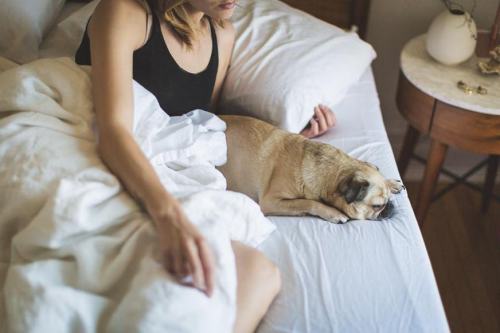
No, you’re not dreaming: A sleep robot really does exist. In fact, it’s one of many super advanced new tech devices that could help you improve your sleep (and therefore, your productivity and happiness while awake).
Sleep and tech have historically had a fraught relationship. The blue light from devices like smartphones and iPads is a known disruptor of circadian rhythms (AKA your internal sleep-and-wake clock). Meanwhile, some studies have shown that scrolling through Instagram and Facebook feeds might foster anxiety and depression, emotions that don’t exactly help with restful slumber.
But a new generation of devices is turning all of that tension around by using technology to both help you figure out why you’re not sleeping well and put you on a (pillowy) path to more blissful, energizing nights.
Check out the 7 most exciting new sleep trackers, below.
Nokia Sleep
Lay down on Nokia’s new pad (which goes under your sheets) and it will record lots of data while you snooze, like an analysis of your sleep cycles, heart rate, and snoring. That data is then sent to the app, giving you the chance to chart what’s keeping you from hopping out of bed bright-eyed and bushy-tailed. It’ll also sync with other smart devices in your house. For instance, it can turn the lights off for you when it senses you’re in bed. My only fear with this one is that the feeling of the pad might bother some people.
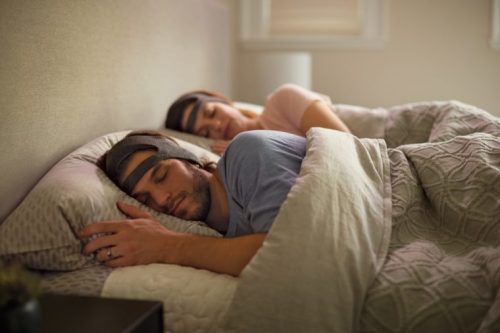
Philips SmartSleep
Okay, you’re not going to want to use this one if you’ve just started snuggling with a new partner. The SmartSleep is a headband sleep sensor that kind of looks like a goofy helmet made out of fabric. It’s soft, though, so as to not bother you when your head’s on the pillow. It tracks your sleep stages and provides tips on how to improve your sleep habits. In the company’s own research, it’s been shown to help users improve the quality of their deep sleep.
Philips Somneo Sleep and Wake-Up Light
Philips also makes this less intrusive tool you can set up on your nightstand. The light gradually increases before your wake time to simulate sunrise and help you wake up more naturally. At night, it also provides a guided light-and-sound breathing exercise to help you power down.
Somnox
Finally, the “ultimate huggable” robot! Somnox looks like a pillow designed to fit the curve of your cuddled-up body, and that’s exactly what it is. It “breathes” while you spoon it so that your inhales and exhales will naturally sync with the soothing rhythm, helping you fall asleep. It’s also got audio if you need it—white noise, guided meditations, and even lullabies. And unlike other spooning partners, there’s no chance it will inadvertently kick you at 4:00 a.m. (It also won’t spoon you back, but that’s another issue…)
Muse
Here’s a slightly different approach: Muse is a brain-sensing headband you use when you’re awake, not asleep. But its ability to help you master meditation can help you calm your mind 24-7. Less stress and anxiety during the day equals better sleep at night.
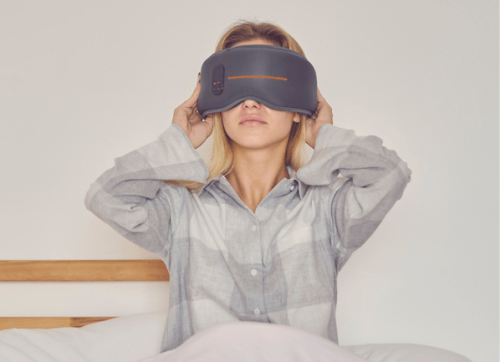
Dreamlight
I honestly can’t believe it took so long for someone to give the sleep mask a tech upgrade. While this version of the popular sleep tool isn’t as cozy as its cashmere counterparts, it has other features to make up for that. Internal lights guide you through a sleep-inducing breathing exercise and regulate melatonin to help you wake up naturally. It’s the perfect in-flight device for a frequent flyer.
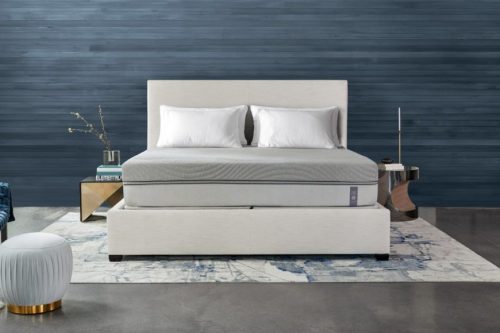
Sleep Number i10 Mattress
This one’s a definite splurge, but it does come with a 25-year warranty. It’s basically the smartest bed you can buy, thanks to climate-cooling technology and smartphone-adjustable firmness on individual sides (in case your partner likes a cushier zone, or vice versa). The bed even tracks your sleep and shows you your nightly Sleep IQ, which you can work on improving by making adjustments.
Tech-obsessed? Check out the most buzz-worthy wellness products I spotted at CES. And here’s how a smart home can make you healthier.
Sign up for the Well+Good SHOP Newsletter
Get exclusive deals on wellness, beauty, fitness, and food products that have been hand-picked by our editors.
Got it, you've been added to our email list.




